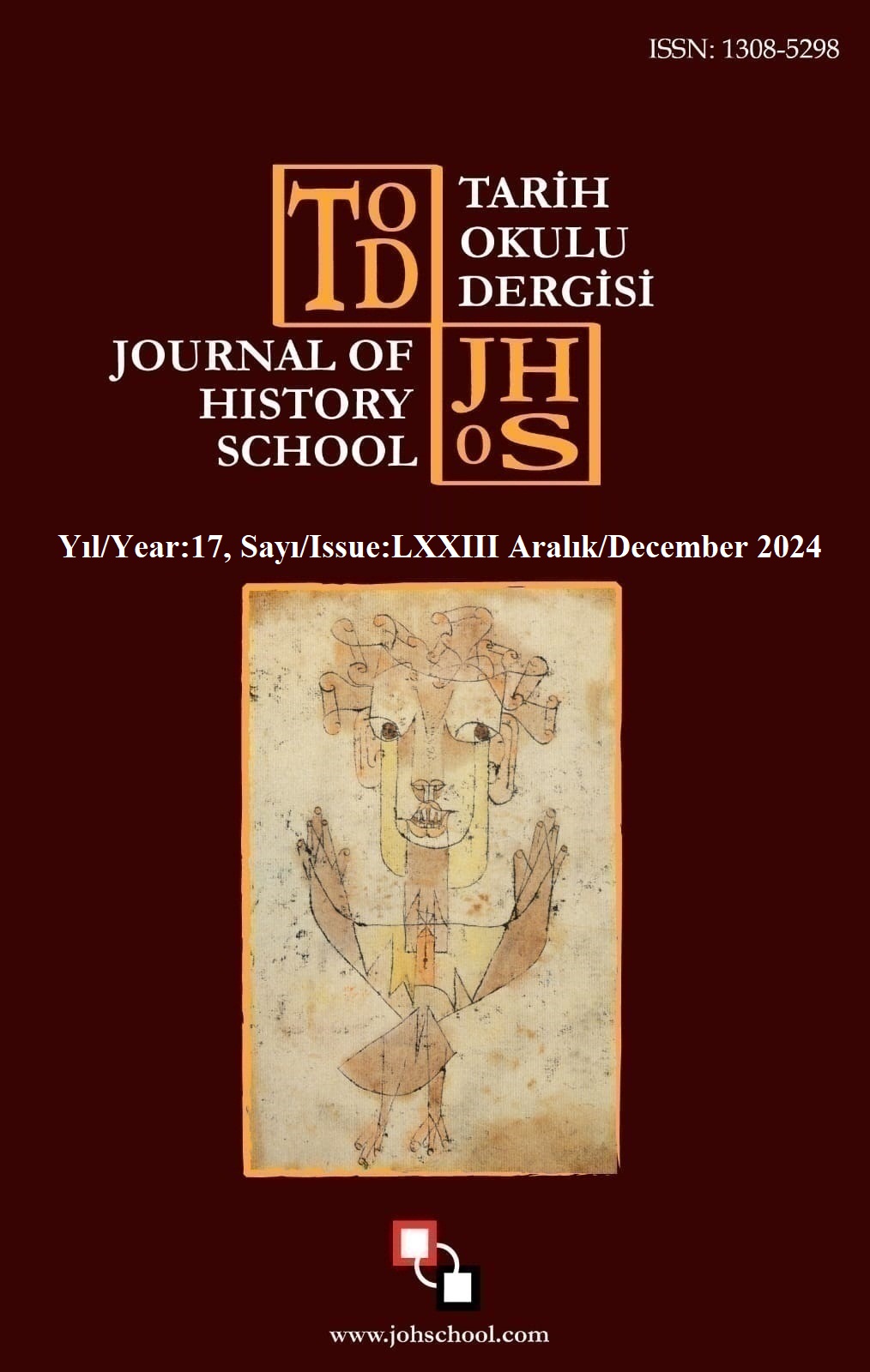Author :
Abstract
İnsanlar tarih sahnesine çıktıkları günden bu yana oyun oynamışlardır. Bugün oynanan pek çok çocuk oyununun geçmişi de çok eski devirlere dayanmaktadır. Çocuk oyunları içinden çıktıkları kültüre özgü olup kuşaklar boyunca aktarılarak bugüne gelen somut olmayan kültürel miras ögelerindendir. Bir toplumun çocuk oyunları o toplumun kültürel değerlerindendir ve pek çok yönden işlevseldir. Çocuklar hayata dair becerileri oyunlar aracılığı ile edinir, milli kültür bilinci kazanır. Günümüzde şehirleşme ve apartman kültürü gibi sebeplerle geleneksel çocuk oyunları yok olmaktadır. Toplum hafızasında yer etmiş kültürel faaliyetlerin bir yansıması olan geleneksel çocuk oyunlarının halk belleğinden silinmemesi ve aktarılması adına derlenmeleri önem arz eder. Bu çalışmada Düzce’de oynanan geleneksel çocuk oyunlarının kültürel bellekten silinmesine mani olmak için bunları belirleyip gün yüzüne çıkarmak, yeni kuşaklara aktarmak hedeflenmiştir. Derlemenin tek başına yeterli olmayacağı bilimsel yorumların da gerekli olduğu gerçeğiyle, derlenen oyunlar işlevleri bakımından da değerlendirilmiştir. Çalışmada alan araştırması yöntemlerinden derleme yöntemi ile 58 kaynak kişiden 30 ana oyun ve bunlarla bağlantılı olanlarla birlikte toplam 59 oyun derlenmiş, tanıtılmış ve işlevleri açısından değerlendirilmiştir. Yapılan değerlendirme sonucunda Düzce yöresinde oynanan geleneksel çocuk oyunlarının bazılarının çok eski zamanlardan günümüze çeşitli Türk topluluklarında oynanan oyunlar olduğu, bazılarının değişime uğrayarak günümüze ulaştığı tespit edilmiştir. Bununla birlikte oyunların çoğunun Türkiye’nin diğer bölgelerindekilerle aynı olduğu görülmüştür. Bazı oyunların ise oynanma şekli aynı iken adlandırmada farklılıklar olduğu tespit edilmiştir. Geniş bir etnik çeşitliliğe sahip olan Düzce’de çocuk oyunlarında buna paralel bir farklılık tespit edilmemiştir. Bu da çocuk oyunlarının birleştirici yönünü göstermektedir. Sonuç olarak oyunların geçmişe kıyasla daha az olmakla beraber hâlâ oynandığı ve Düzce’nin geleneksel çocuk oyunlarının aktarımı ve sürekliliği açısından önemli bir konumda olduğu sonucuna varılmıştır. Ayrıca oyunların Bacomun modelindeki folklorun dört işlevini karşıladığı; çocuğun yaşamını şekillendirecek toplumsal, kültürel, fiziksel, dilsel, bilişsel, duyuşsal açısından beceriler kazandırmada işlevsel olduğu görülmüştür.
Keywords
Abstract
People have been playing games since the day they appeared on the stage of history. Many children's games played today date back to ancient times. Children's games are culturally specific and are among the intangible cultural heritage elements that have been passed down through generations and have survived to this day. Children's games are among the social and cultural values of a society and are very functional. Children learn about life through their relationships and gain awareness of national culture. Today, traditional children's games are disappearing due to reasons such as urbanization and apartment culture. It is important to compile traditional children's games, which are a reflection of cultural forms established in the memory of the society, in order not to be erased from the public memory and to be transferred. In order to prevent the traditional children's games played in Düzce from being erased from cultural memory, this study was aimed to identify them, create a day view and transfer them to new generations. Comparisons of the compiled games were also evaluated, with the fact that the sufficiency of the compilation alone was also required in the reports. In the study, a total of 59 games, including 30 main games containing 58 sources and those related to treatment, were compiled, introduced and evaluated from a mutual perspective, using the combining method, one of the field research methods. As a result of the evaluation, it was determined that some of the traditional children's games played in the Düzce region were games played in various Turkish communities from ancient times to the present day, and that some of them have survived to the present day by undergoing changes. However, it has been observed that most of the games are the same as those in other regions of Turkey. It has been determined that some games have differences in naming, although the way they are played is the same. In Düzce, which has a wide ethnic diversity, no parallel difference has been detected in children's games. This shows the unifying aspect of children's games. As a result, it was concluded that games are still played, although less frequently than in the past, and Düzce is in an important position in terms of the transmission and continuity of traditional children's games. In addition, the games meet the four functions of folklore in Bacom's model; It has been observed that it is functional in providing social, cultural, physical, linguistic, cognitive and affective skills that will shape the child's life.





